Мэтт Хейг - How to Stop Time
Здесь есть возможность читать онлайн «Мэтт Хейг - How to Stop Time» весь текст электронной книги совершенно бесплатно (целиком полную версию без сокращений). В некоторых случаях можно слушать аудио, скачать через торрент в формате fb2 и присутствует краткое содержание. Год выпуска: 2017, Издательство: Canongate Books, Жанр: Современная проза, на английском языке. Описание произведения, (предисловие) а так же отзывы посетителей доступны на портале библиотеки ЛибКат.
- Название:How to Stop Time
- Автор:
- Издательство:Canongate Books
- Жанр:
- Год:2017
- ISBN:нет данных
- Рейтинг книги:4 / 5. Голосов: 2
-
Избранное:Добавить в избранное
- Отзывы:
-
Ваша оценка:
- 80
- 1
- 2
- 3
- 4
- 5
How to Stop Time: краткое содержание, описание и аннотация
Предлагаем к чтению аннотацию, описание, краткое содержание или предисловие (зависит от того, что написал сам автор книги «How to Stop Time»). Если вы не нашли необходимую информацию о книге — напишите в комментариях, мы постараемся отыскать её.
How to Stop Time — читать онлайн бесплатно полную книгу (весь текст) целиком
Ниже представлен текст книги, разбитый по страницам. Система сохранения места последней прочитанной страницы, позволяет с удобством читать онлайн бесплатно книгу «How to Stop Time», без необходимости каждый раз заново искать на чём Вы остановились. Поставьте закладку, и сможете в любой момент перейти на страницу, на которой закончили чтение.
Интервал:
Закладка:
So ridiculous.
And I drift away again, forgetting my headache, forgetting this is the Coach and Horses, and imagining it is the Boar’s Head in Eastcheap, and that I could step outside into the night and walk back through the dark narrow streets to reach Rose and Marion and a version of me I had abandoned for centuries.
London, 1607–1616
In 1607 I was twenty-six years old.
I obviously didn’t look twenty-six but I was looking a fraction older than I had done back when I’d worked on Bankside. When I had first become aware of my difference I thought that was it, I thought my physical being was frozen in time, but then, slowly, very slowly, things happened. For instance, hair . My crotch, chest, underarms and face were growing more hairs than they had done before. My voice, which had broken when I was twelve, became deeper still. My shoulders broadened a little. My arms found it easier to carry washing water back from the well. I gained greater control over my erections. And my face, according to Rose, became more like the face of a man. I was becoming so much more like a man that Rose suggested we get married, and we did so, in a small parentless wedding, with Grace as our witness.
Grace was now married too. She had become happily betrothed to her precise opposite – a shy, God-fearing, flush-cheeked shoemaker’s apprentice called Walter – at the age of seventeen and she now lived with him in a tiny cottage in Stepney.
After we married, Rose and I moved too. The reason for this was quite simple. The longer we stayed in one place, the more dangerous it became. Rose’s idea was to head further out, to one of the villages, but I knew of the potentially perilous consequences of this, so I suggested we do the opposite. I suggested we go and live inside the walls, go where we could disappear into the safety of crowds, and so we moved to Eastcheap, and life was good for a while.
Yes, there was rot and rats and misery all around us, but we had each other. The problem was, of course, that, although I was ageing, I wasn’t ageing at the same speed as Rose. She was now twenty-seven years old, and looked it. While I was, gradually, starting to look young enough to be her son.
I said to people I was eighteen, which I could just about get away with, at least at the Boar’s Head Inn, where I had started to play most nights of the week, but by the time Rose came to me and told me she wasn’t bleeding, and that she thought she was pregnant, I had already felt like I was endangering her. Anyway, it was true. And I had no idea if the news was wonderful or devastating. She was pregnant. We had hardly enough money to feed ourselves, and now there was going to be a third mouth to feed.
Of course, there were other worries too. I worried something would happen to Rose. After all, I had heard of so many women dying during childbirth that it seemed a wholly ordinary occurrence. So I kept the windows closed against the cold. And I prayed for God to protect her.
And, for once in my life, nothing terrible happened.
What happened was this. We had a daughter. We called her Marion.
I would hold her in my arms while she was still wrapped in swaddling bonds, and I used to sing to her in French to calm her when she cried, and it generally seemed to work.
I loved her, instantly. Of course, most parents love their children instantly. But I mention it here because I still find it a remarkable thing. Where was that love before? Where did you acquire it from? The way it is suddenly there, total and complete, as sudden as grief, but in reverse, is one of the wonders about being human.
She was small, though. Obviously babies, as a rule, are small and delicate but back in those days the delicacy came with an extra edge.
‘Will she last, Tom?’ Rose used to say, when Marion was asleep and we watched her, seeking the comfort of her every breath. ‘God won’t take her, will He?’
‘No. She’s as healthy as a goose,’ I used to say.
Rose obsessed over memories of Nat and Rowland, her dead brothers. Any time Marion coughed – or even made any kind of noise that could be loosely interpreted as one – Rose would become ashen and declare, ‘That’s how it began with Rowland!’
At night she would watch the stars, not quite knowing what she was watching them for, but knowing that our fates – and the fate of Marion – were written on them.
All of this anxiety took its toll on Rose, who became very quiet and withdrawn in the following months. She looked pale and tired, and kept blaming herself for being a terrible mother, which she wasn’t at all. I wonder now if it was a form of postnatal depression. She was always up before it was light. And became more religious than she had ever been, saying prayers even as she held Marion. She lost her appetite, eating barely more than a few mouthfuls of pottage a day. She never worked now, or sold fruit at the market, as Marion had taken over her days, and I think she missed the company and liveliness of the time, so I encouraged Grace to come and see her, which she did from time to time, bringing baby clothes or calming ointments from the apothecary, along with her earthy humour.
We had lovely neighbours, Ezekiel and Holwice, who’d had nine children of their own, five of whom were still alive, and so Holwice – although in her fifties, worked now as a wool-walker at the watermill – had lots of childcare advice. It was the usual kind of stuff. Open the windows to ward away bad spirits. No bathing. A dab of breast milk and rosewater solution on the baby’s forehead to aid sleep.
But Rose thought all manner of things could endanger little Marion (and she was, always, little , which added to Rose’s concern). She would get cross with herself, or me, for instance, if either of us scratched our head.
‘It is a dirty habit, Tom. It could make her sick!’
‘I am sure it won’t.’
‘You must stop it, Tom. You must stop it. And you mustn’t belch around her.’
‘I didn’t know I did belch around her.’
‘And you must wipe your mouth after drinking ale. And be quiet when you come home at night. You always wake her.’
‘I am sorry.’
Other times, when Marion was asleep, Rose would just burst out crying for no apparent reason, and ask me to hold her, which I did. Often, when I came back from a night playing music, I would hear her tears as I entered the door.
Anyway, I don’t know why I dwell on this. This was only a matter of months. And Rose returned back to her old self by the end of summer. I suppose I am relaying it because it added to my guilt. I knew, deep down, that I was part of the strain on things. Rose had, of the two of us, been the strong one, the organiser and initiator, the one who always knew what was best to do for the both of us. And it was her strength that had, obviously, enabled Rose to marry me, knowing all that she knew.
But, out of sorts, her doubts rose up. Even if Marion survived infancy, and childhood, what then? What would happen when she looked older than her father? The questions, we both knew, would breed like rabbits.
I had a new worry too. While Rose stayed concerned that Marion would die, or otherwise overtake me, I worried with an equal intensity that she wouldn’t. What I mean is, I worried she would be like me. I worried she would be abnormal. That she would reach the age of thirteen and then stop getting any older. I worried that Marion would face the same problems – or even worse ones – for I knew (of course I knew) that women were the ones who had to die at the bottom of rivers to prove their innocence.
I couldn’t sleep at night, however much ale I had drunk (and the quantity was increasing at a daily rate). I kept thinking of Manning, still alive, probably still in London. Though we never encountered him, I often had the sense of him. I sometimes imagined I could feel his closeness, as if his malevolent essence was contained in shadows or cesspits or the single hand of a church clock.
Читать дальшеИнтервал:
Закладка:
Похожие книги на «How to Stop Time»
Представляем Вашему вниманию похожие книги на «How to Stop Time» списком для выбора. Мы отобрали схожую по названию и смыслу литературу в надежде предоставить читателям больше вариантов отыскать новые, интересные, ещё непрочитанные произведения.
Обсуждение, отзывы о книге «How to Stop Time» и просто собственные мнения читателей. Оставьте ваши комментарии, напишите, что Вы думаете о произведении, его смысле или главных героях. Укажите что конкретно понравилось, а что нет, и почему Вы так считаете.
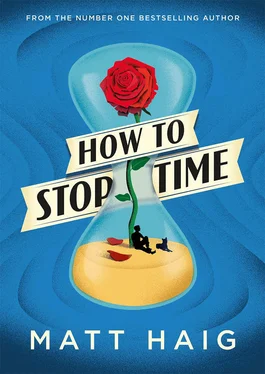
![Мэтт Хейг - Влюбиться в жизнь [Как научиться жить снова, когда ты почти уничтожен депрессией]](/books/28868/mett-hejg-vlyubitsya-v-zhizn-kak-nauchitsya-zhit-sn-thumb.webp)
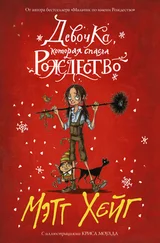
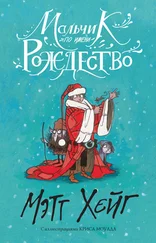
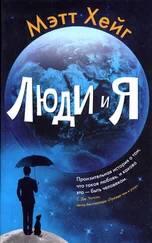


![Мэтт Хейг - Полночная библиотека [litres]](/books/388474/mett-hejg-polnochnaya-biblioteka-litres-thumb.webp)
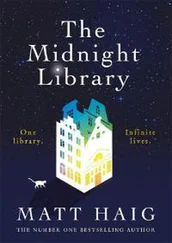
![Мэтт Хейг - Клуб призрачных отцов [litres]](/books/392121/mett-hejg-klub-prizrachnyh-otcov-litres-thumb.webp)

![Мэтт Хейг - Отец Рождество и Я [litres]](/books/421076/mett-hejg-otec-rozhdestvo-i-ya-litres-thumb.webp)
